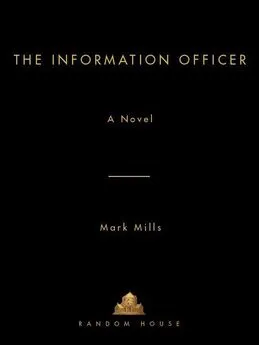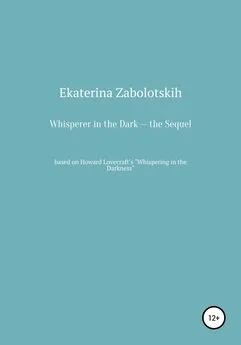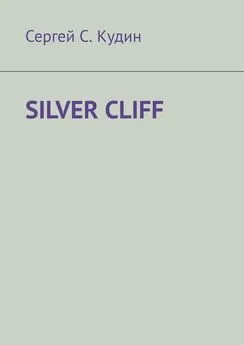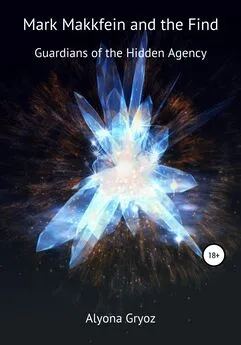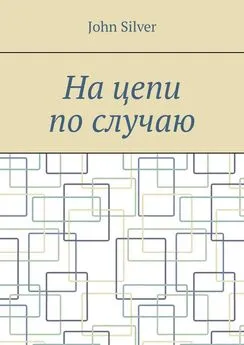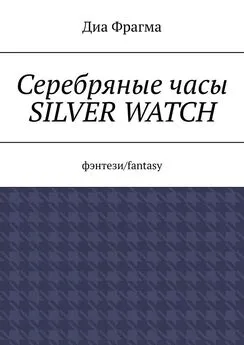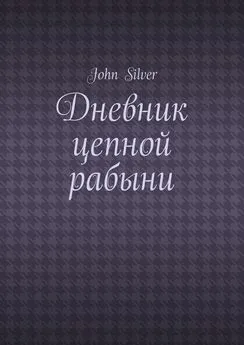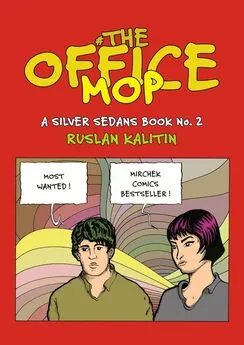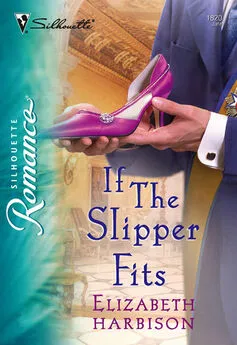Mark Chadbourn - The Silver Skull
- Название:The Silver Skull
- Автор:
- Жанр:
- Издательство:неизвестно
- Год:неизвестен
- ISBN:нет данных
- Рейтинг:
- Избранное:Добавить в избранное
-
Отзывы:
-
Ваша оценка:
Mark Chadbourn - The Silver Skull краткое содержание
A devilish plot to assassinate the queen, a cold war enemy hell-bent on destroying the nation, incredible gadgets, a race against time around the world to stop the ultimate doomsday device... and Elizabethan England's greatest spy! Meet Will Swyfte—adventurer, swordsman, rake, swashbuckler, wit, scholar and the greatest of Walsingham's new band of spies. His exploits against the forces of Philip of Spain have made him a national hero, lauded from Carlisle to Kent. Yet his associates can barely disguise their incredulity—what is the point of a spy whose face and name is known across Europe? But Swyfte's public image is a carefully-crafted façade to give the people of England something to believe in, and to allow them to sleep peacefully at night. It deflects attention from his real work—and the true reason why Walsingham's spy network was established. A Cold War seethes, and England remains under a state of threat. The forces of Faerie have preyed on humanity for millennia. Responsible for our myths and legends, of gods and fairies, dragons, griffins, devils, imps and every other supernatural menace that has haunted our dreams, this power in the darkness has seen humans as playthings to be tormented, hunted or eradicated. But now England is fighting back! Magical defences have been put in place by the Queen's sorcerer Dr. John Dee, who is also a senior member of Walsingham's secret service and provides many of the bizarre gadgets utilised by the spies. Finally there is a balance of power. But the Cold War is threatening to turn hot at any moment... Will now plays a constant game of deceit and death, holding back the Enemy's repeated incursions, dealing in a shadowy world of plots and counter-plots, deceptions, secrets, murder, where no one... and no thing... is quite what it seems.
The Silver Skull - читать онлайн бесплатно полную версию (весь текст целиком)
Интервал:
Закладка:
"What is the nature of the weapon?" Will asked.
"Therein lies the greatest mystery of all." Kneading his hands, Dee paced the room. A tremor ran through him. It is a mask, a silver skull etched with the secret incantations of the long-forgotten race that first created it. A mask that must be bonded with a mortal to unleash its great power. But all we have are stories, fragments, hints. The nature of that power is not known. All that is known for sure is that nothing can stand before it and survive."
"So Hawkins was charged with seizing the weapon from the Spanish," Will surmised.
"That, at least, was England's fervent hope," Walsingham replied. "While his fleet was being repaired, Hawkins, Francis Drake, and a small group of men slipped secretly into the interior. Five men gave their lives to secure the skull from the Spanish, but before Hawkins could reach his ships, the viceroy, Don Martin Enriquez, took his fleet into the harbour and launched an attack while the English guard was down. Hawkins, Drake, and a small crew escaped in two ships, but the remainder of the English party were tortured and killed by the viceroy as he attempted to discover what we knew about the skull." A shadow passed over Walsingham's face that was like a bellow of rage against his usual detachment. "One of the few survivors, job Hortop, told how the Spanish dogs hanged Hawkins's men from high posts until the blood burst from the ends of their fingers, and flogged them until the bones showed through their flesh. But not a man spoke of the skull. Heroes all."
Nodding in agreement, Mayhew bowed his head for a moment.
"Hawkins and Drake returned in two storm-torn ships with just fifteen men," Walsingham said. "Eighty-five stout fellows had starved to death on the journey home. But the skull was ours."
Several elements of the story puzzled Will. "Then why did we not use this great weapon to drive back the Enemy, and our other, temporal enemies. Spain would not be so bold if it knew we held such a thing," he asked.
"Because the skull alone is not enough," Dee replied sharply to the note of disbelief in Will's voice. "The stories talk of three parts-a Mask, a Key, and a Shield. All are necessary to use the weapon effectively, though its power can be released without direction and with great consequences for the user by the Mask and Key alone."
Mayhew refilled his goblet, his hands shaking. "And the Key and the Shield?"
"The last twenty years were spent in search of them, to no avail," Walsingham replied. "They were for a time in the hands of the Knights Templar, this we know for sure."
"And those warrior monks fought the Enemy long before us," Dee stressed. "The Templars must have known of the importance of these items and hid them well."
"Then who was the prisoner in the Tower?" Will enquired.
"Some Spaniard who had been cajoled into trying to make the Mask work. What he cannot have realised is that, once bonded, the Mask cannot be removed until death," Dee said. "You are a slave to it, as it is to you."
Will finally understood. "And so he was locked away in the Tower for twenty years while you attempted to find the other two parts."
"We could not risk the weapon falling into the hands of the Enemy in case they located the Key," Walsingham said, "and brought devastation down upon us all."
"But after twenty years, the Enemy chose this night to free the prisoner from the Tower," Will pressed. "Why now, unless the Key is already in their hands?"
Walsingham and Dee exchanged a brief glance.
"What do you know?" Will demanded.
"The Enemy's plans burn slowly," Dee replied. "They do not see time like you or I, defined by the span of a man's life. Their minds move like the oceans, steady and powerful, over years and decades, and longer still. Yet we knew some great scheme was in motion, just not its true nature."
"When the defences of the nation were first put in place, all was quiet for many years." Walsingham stood erect, his hands clasped behind his back. "The hope grew that finally we would be safe. But then there came the strange and terrible events surrounding the execution of the traitor Mary, Queen of Scots, one year ago and we glimpsed the true face of the terror that was to come."
CHAPTER 4

18th February 1587
 ll through the bitter winter's night, Robert, earl of Launceston, had ridden, and finally in the thin, grey morning light his destination fell into view on the rain-soaked Midlands terrain. His fingers were frozen on the reins, his breeches sodden and mud-splattered, and his bones ached from the cold and exhaustion.
ll through the bitter winter's night, Robert, earl of Launceston, had ridden, and finally in the thin, grey morning light his destination fell into view on the rain-soaked Midlands terrain. His fingers were frozen on the reins, his breeches sodden and mud-splattered, and his bones ached from the cold and exhaustion.
Launceston was hardly used to such privation, but he could not refuse his orders to be the eyes and ears of Lord Walsingham for the momentous event about to take place. Though thirty-eight, he looked much older. His skin had an unnatural, deathly pallor that many found repulsive and had made him something of an outcast at court, his nose long and pointed, his eyes a steely grey.
When Walsingham called on him, it was usually to have a throat slit in the middle of the night, a Spanish agent agitating for Elizabeth's overthrow or assassination, sometimes a minor aristocrat with unfortunate Catholic sympathies. He had forgotten how many he had killed.
At least this time he would only be watching a death instead of instigating it.
Just beyond Oundle, Fotheringhay Castle rose up out of the flat, bleak Northamptonshire landscape on the north side of the meandering River Nene. On top of the motte was the grand stone keep, surrounded by a moat, with ramparts and a ditch protecting the inner bailey where the great hall lay alongside some domestic buildings. The gatehouse stood on the other side of a lake crossed by a bridge. Lonely. Well defended. Perfect for what lay ahead.
As he drew towards the castle, Launceston feared he had missed the event. Mary's execution had been scheduled for the cold dark of seven a. in. and the hour was already approaching ten, but he could hear music from the courtyard and the distant hubbub of an excited crowd.
Encouraging his horse to find its last reserves, he pressed on through the deserted Fotheringhay village, across the bridge, and the drawbridge, and into the courtyard.
"A ghost!"
"An omen!"
When they saw his ghastly features peering from the depths of his hood, a shiver ran through the crowd of more than a hundred who had come to see history made. He hated them all, common, witless sheep, but to be fair, he disliked his own kind at the court just as much.
As they slowly realised he was only a man, they returned their attention to the grey bulk of the great hall. Some waved placards with Mary drawn as a mermaid, a crude insult suggesting she was a prostitute. She had no friends there on the outside, but the long wait had reduced the baying to a harsh murmur. The air of celebration was emphasised by a band of musicians, playing an air that usually accompanied the execution of witches. It could have been considered another insult, except Launceston knew that Walsingham had personally requested the playing of the dirge.
Dismounting, he strode towards the hall where his way was barred by the captain of the sheriff's guard in breastplate and helmet, halberd raised. "Launceston," he said, "here at the behest of your Lord Walsingham, and our queen, God save her. I am not too late?"
"The traitor has been at her prayers for three hours," the captain replied. "She has read her will aloud to her servants, and prepared for them her final instructions. My men have been instructed to break down the door to her quarters if she delays much longer. "
Launceston pushed his way into the great hall where two hundred of the most respected men in the land waited as witnesses. They had been carefully selected for their trustworthiness, their numbers limited so that whatever happened in that hall, only the official version would reach the wider population.
Though logs blazed in the stone hearth, it provided little cheer. Black was the abiding colour in the room, on the drapes surrounding the three-foot-high platform that would provide a clear view of the proceedings to the audience, on the high-backed chair at the rear of the dais, on the kneeling cushion and the executioner's block. It was there too in the clothes and masks of the executioner and his assistant. Bulle, the London hangman, was ox-like, tall and erect, his hands calmly resting on the haft of his double-headed axe.
Launceston could feel the stew of conflicting emotions, the sense of relief that the traitorous whore's lethal machinations would finally be ended, the anxiety that they were embarking on a dangerous course into uncharted waters. Spain, France, and Rome watched and waited. The killing of one of royal blood was not to be taken lightly, espe cially one so many Catholics believed to be the rightful ruler of England. Her execution was the right course of action; Mary would always be a threat to England as long as she lived.
A murmur ran through the assembled group, and a moment later the sheriff, carrying his white wand of office, led Mary into the hall accompanied by the earls of Shrewsbury and Kent. Six of her retinue trailed behind.
Launceston had never seen her before, but in that instant he understood why she loomed so large over the affairs of several states. She exuded a rapacious sexuality that was most evident in the flash of her unflinching eyes. A glimpse of her red hair beneath her kerchief was made even more potent by the shimmering black velvet of her dress. She would not be hurried, her pace steady as she clutched on to an ivory crucifix. A gold cross hung at her neck, and a rosary at her waist.
Launceston was surprised to find himself captivated like every other man in the room. The blood of two men lay upon her, yet that only served to increase her magnetism; she appeared to be a woman who could do anything, who could control any man. She climbed onto the platform and sat in the chair, levelling her gaze slowly and dispassionately across all present.
Walsingham's brother-in-law, Robert Beale, the clerk to the Privy Council, caught Launceston's eye and nodded before reading the warrant detailing Mary's crime of high treason for her constant conspiracies against Elizabeth, and calling for the death sentence. The earl of Shrewsbury asked her if she understood.
Mary gave a slight smile that Launceston found unaccountably chilling. "I thank my God that He has permitted that in this hour I die for my religion," she intoned slyly.
No one in the room was prepared to listen to a Catholic diatribe, and the dean of Peterborough stood up to silence her. Mary suddenly began to sob and wail and shout in Latin, raising her crucifix over her head.
Launceston had the strangest impression that he was seeing two women occupying the same space; this Mary was devout, believing herself to be a martyr to her religion, not sexually manipulative, not threatening, or cunning The change troubled him for it did not seem natural, and he was reminded of the coded warning Walsingham had given him before his departure: "Do not trust your eyes or your heart. "
After she had pleaded passionately for England to return to the true faith, she changed again, her eyes glinting in the firelight, her lips growing cruel and hard.
As Bulle the executioner knelt before her and made the traditional request that she forgive him her death, she replied loudly, "I forgive you with all my heart, for now, I hope, you shall make an end of all my troubles." It was a stately comment, but Mary twisted it when she added in a whisper that only a few could hear, "But not your own." As she looked around the room, she made it plain that she was speaking about England.
Читать дальшеИнтервал:
Закладка:

